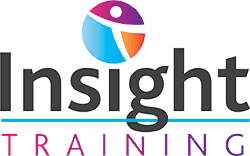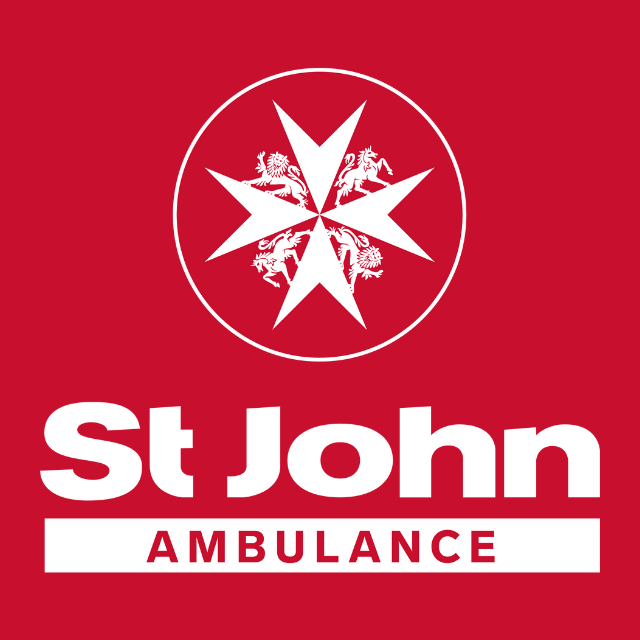Working in Disability: The Most Rewarding Jobs in the Industry

Disability is an industry that offers varied roles for every passion and every talent. It’s also an in-demand field – the demand is so high for disability workers in Australia that the skills and qualifications required to enter this industry are included on the Australian government’s Priority Skills List, making potential workers eligible for subsidised course fees.
The rollout of the National Disability Insurance Scheme (NDIS) in Australia has also brought many new job opportunities in the sector.
Many jobs in the sector pay well and/or have opportunities to work part-time and flexibly.
Jobs in the disability sector |
Median pay |
|---|---|
Disability support worker |
$59k |
Allied health worker in the disability sector |
$79k |
Support coordinator |
$79k |
Access and inclusion work |
$70k |
Disability advocacy |
$90k |
1. Disability Support Worker
The role involves:
- Providing personal care, such as assistance with dressing and hygiene.
- Taking clients to appointments, social activities and outings, and to the shops.
- Preparing meals and helping with household chores.
- Providing clients with social connection and support.
- Helping clients build skills that enable them to live independently.
Disability support workers (or carers) provide long-term, hands-on support services for clients with disabilities. They’re typically employed by disability service providers and support clients in their own homes and in the community.
They may also offer respite services: where families will usually care for an individual, a respite care worker enables families to take a break from caring duties.
You don’t technically need a qualification to become a disability support worker. However, many employers will prefer candidates to have completed TAFE studies in related areas.
Plus, getting a qualification is a useful way to learn about the industry, how to do the job well and safely and learn how to uphold the National Standards for Disability Services.
Relevant courses may overlap disability and aged care, and include:
- Certificate III in Home and Community Care
- Certificate III in Disability Support
- Certificate III in Individual Support
- Assistant in Nursing qualifications (such as Certificate III in Health Assistance or similar)
Average disability support worker salary:
Low
median
high
2. Allied health worker
Allied health workers use their specialist training and skills to promote the wellbeing of clients.
Allied health workers include:
Physiotherapists
They treat a wide range of conditions and injuries with exercises, massage and manipulation, and specialised tools. Physiotherapists can choose to specialise in rehabilitation (e.g. working with clients recovering from strokes or car accidents), or in specific disabilities/health conditions.
Occupational therapists
They help people experiencing injury and disability participate in their life as fully as possible. This may involve prescribing exercises, showing people adaptive tools, and activity and environment modification.
Social workers
They help people encountering problems in their life by providing emotional and practical support. In the disability sector, they can provide talk therapy, mental health support, make action plans to help people through challenges (e.g. returning to work, experiencing inaccessibility), and connect people to resources.
Speech pathologists
They assess, diagnose, and treat communication and swallowing disorders in adults, young people, and children.
Allied health workers are highly skilled professionals and working in these professions tends to require relevant training. At a minimum, you would be required to complete a relevant Bachelor’s degree qualification (which takes around 3 years full-time). Some specialisations may require further study.
What’s an alternative pathway into allied health?
If you’re looking to dip your toes into allied health work, alternative pathways are also possible. Some TAFE courses (such as Certificate IV in Allied Health Assistance) will qualify you to assist in service delivery under professional supervision. Working as an allied health assistant is rewarding work that will give you a good idea of what allied health is all about.
This can help you to get a feel for the job, and get paid for your work, before making an informed choice about whether to undertake further studies.
Average allied health worker salary:
Low
median
high
Average allied health assistant salary:
Low
median
high
3. Support coordinator
Like support workers, support coordinators are dedicated to increasing the independence of people living with disabilities. However, their work is less hands-on, and more focused on opening opportunities and thinking strategically. They work with individual clients to increase their confidence and ensure they’re well-supported.
The role involves:
- Helping people successfully apply for the NDIS, for JobActive opportunities, the Disability Support Pension (DSP), or similar government-provided support.
- Providing disability employment services to support clients in their existing jobs or to look for the right job for them.
- Supporting clients to use their NDIS funding in ways that are suitable to them and directed by them.
- Planning and coordinating career, education, and volunteering opportunities for people with disabilities.
- Helping people with disabilities build their skills, confidence, and healthcare and support networks.
Relevant requirements to enter this field might include:
Typically, there are no specific qualifications that are required for these roles. That said, many job advertisements expect some form of qualification in:
- Disability
- Social work
- Case management
It may be possible to gain entry from work experience, such as disability support work. You’ll also need to undergo a police check.
Average support coordinator salary:
Low
median
high
4. Access and inclusion
Many organisations, such as larger workplaces, TAFEs, and universities, employ people who ensure that policies and practices enable and encourage inclusion.
These roles have a range of titles, including (but not limited to):
- Access and Inclusion Coordinator
- Disability Liaison Officer
- Accommodation Manager
Regardless of job title, these workers ensure that organisations are a safe, inclusive place where everyone has an equal opportunity to thrive.
The role involves:
- Helping organisations identify opportunities to be more inclusive. For example, making buildings wheelchair accessible, installing hearing loops, and audio captioning recordings.
- Working with staff members or students with disabilities to help identify what access arrangements would support their work/learning, and making plans to implement those arrangements.
- Educating members of the organisation about disability and inclusion and putting together helpful fact sheets for reference.
- Helping the organisation meet its statutory requirements for making reasonable adaptations for staff/students.
- Reviewing new policies to consider their impact on access and inclusion.
Relevant requirements to enter this field might include:
Although these roles don’t tend to require any specific qualifications, you do need to demonstrate a thorough understanding of a wide range of disabilities. Lived experience can be particularly valuable, as can previously work in the disability sector.
Qualifications that would be advantageous include:
- Management
- HR
- Education Support
- Social work
- Disability and community services
- Or similar qualifications
You would also likely need to pass a police check.
Average access and inclusion salary range:
While the role of access and inclusion currently doesn’t have average salary data, recent job advertisements for this role reveal a salary range of $70-130k.
salary range
Job advertisement data was listed on Indeed.
5. Advocate
A range of non-profit organisations, hospitals, and government bodies employ advocates. When people in the community have complaints such as discrimination or exclusion, an advocate can be involved in resolving the situation and ensuring that individual rights are protected.
Some advocates will work on behalf of a range of marginalised groups, others specialise, for instance, in disability advocacy.
Working as an advocate may involve:
Helping people go through complaints procedures.
This involves understanding the correct and most effective avenues for complaints and filing relevant paperwork on behalf of clients.
Managing disagreements and complaints
Such as mediating disagreements, and escalating complaints if an appropriate resolution hasn’t been found.
Assessing clients to make submissions.
For example, submissions to Royal Commissions or reviews.
Reviewing government and organisational decisions.
Reviewing decisions made by governments or organisations to check if it upholds legal and social justice principles.
Advocating for those who can’t advocate for themselves.
In hospital settings, potentially advocating for individuals who are too unwell to drive their own advocacy. This may involve seeking second opinions, ensuring your client consents to treatment, and ensuring they’re getting appropriate care.
Empowering clients through knowledge and resources.
Generally, advocates will empower clients to speak for themselves but will provide useful knowledge and resources to assist. For example, they may know the relevant legislation or policies that the individual can use to make their complaint more effective.
Educating clients.
Teaching self-advocacy skills to people with disabilities and their families and friends.
Relevant requirements to enter this field might include:
Advocates do not require any specific qualifications. However, they will be knowledgeable about legal frameworks and social justice.
Studies in these areas can be incredibly useful:
- Law
- Disability studies
- Gender studies
- Political science
- Sociology
Average advocate salary:
Low
median
high
There are many ways you can make a positive difference in the lives of people with disabilities. The sector needs passionate people with a range of skill sets and experiences to bring care, support, creative strategies, inclusion, and justice to this diverse community.
Browse Results
Diploma of Counselling
There is a growing need for people who can offer support services to adults and teenagers who may need support and guidance. If you have the desire to help people lead a happier life to reach their full potential, a career as a professional Counsellor...

Diploma of Nursing (SA Only)
Build a meaningful career that makes a difference with the HLT54121 Diploma of Nursing. This nationally recognised qualification provides the essential skills, knowledge, and practical training needed to become a qualified Enrolled Nurse in Australia....


Graduate Diploma in Management
The Graduate Diploma in Management is an online postgraduate qualification that is ideal for busy senior managers, with a potential entry pathway through any of our Graduate Certificates and study that is highly supported, fits into your schedule, and...

Graduate Certificate in Management
The Graduate Certificate in Management is an online postgraduate qualification that is designed for newer and ambitious professionals, with entry possible through management experience alone and a study structure that easily accommodates full-time work...

Certificate III in Community Services (WA Only)
The Certificate III in Community Services is perfect for entry level community services workers who support individuals through the provision of person-centred services. Work may include day-to-day support of individuals in community settings or suppor...

Certificate IV in Fitness
Take the next step in your career and gain the qualification you need to become a Personal Trainer. If you currently work in the fitness industry as a Gym or Group Fitness Instructor, elevate yourself to the next level by studying the SIS40221 Certific...

Certificate III in Fitness
If you’re looking to begin your career in the fitness industry, studying the SIS30321 Certificate III in Fitness is the perfect qualification to get you started. Gain all the knowledge and skills you need to enter the industry as a Gym Instructor or Gr...

Personal Trainer Course
Join the fitness industry as a Personal Trainer and turn your love for fitness into a rewarding career by graduating in both the SIS30321 Certificate III in Fitness & SIS40221 Certificate IV in Fitness. Enjoy the flexibility of being your own boss...

Bachelor of Health Science (Clinical Nutrition)
Clinical nutritionists integrate traditional food wisdom and current scientific evidence to motivate individuals and communities to eat well and live healthier lives. The Bachelor of Health Science (Clinical Nutrition) is supported by a strong underpin...

Bachelor of Health Science (Naturopathy)
Naturopathy is a whole medical system combining theory (philosophy and principles) and practise that uses an array of natural therapies to support healing and maintain health. Naturopaths aim to treat the underlying causes of illness and disease. The c...

Certificate III in Community Services (Perth Only)
Are you a natural when it comes to providing guidance to people? Would you like to kick start a career in Community Services? The Certificate III in Community Services (CHC32015) is the perfect entry-level qualification for prospective Community Servic...

Certificate III in Individual Support (Ageing OR Disability) (Perth Only)
If you have a passion for helping those most in need, this qualification is one way you can utilise your knowledge for the benefit of others. Package the Certificate III in Individual Support (Ageing or Disability) (CHC33021) to save time and gain know...

Certificate lll in Early Childhood Education & Care (Perth Only)
If you love working with children and want to learn more about providing quality education and care in a range of environments, this course is for you. The Certificate lll in Early Childhood Education and Care (CHC30121) can provide you with an entry-l...

Certificate III in Individual Support (Disability) (SA Only)
The Certificate III in Individual Support (Disability) is designed to equip you with the practical skills and knowledge to support people living with disability in a variety of care settings. With a focus on person-centred support, you’ll learn how to...


Certificate III in Non-Emergency Patient Transport (VIC Only)
Our Promise We are confident in the delivery of our training. On successful completion of the course, graduates will be guaranteed a telephone interview for vacant Patient Transport Officer positions in the Non-Emergency Patient Transport division. So...

Diploma of Community Services (Perth Only)
The Diploma of Community Services qualification reflects the roles of community services, case management and social housing workers involved in the managing, co-ordinating and/or delivering of person-centred services to individuals, groups and communi...

Certificate IV in Business (Perth Only)
This qualification is suited to those working as administrators and project officers. In this role, individuals use well-developed skills and a broad knowledge base to apply solutions to a defined range of unpredictable problems and analyse information...

Certificate III in Process Manufacturing (Perth Only)
The Certificate III in Process Manufacturing is designed for those working or looking to work in production, warehousing, or factory roles. This hands-on course equips you with the practical skills needed to operate machinery, follow safety procedures,...

Certificate III in School-Based Education Support (Perth Only)
Are you interested in becoming a teacher’s aide? Work with teachers to create a comfortable and supportive environment for children’s learning. You will ensure lessons run smoothly while also developing the student’s literacy, numeracy and resear...

Certificate III in Allied Health Assistance (Perth Only)
A Certificate III in Allied Health is your entrance into the world of health services! This course will teach you to support workers in a range of fields such as audiology to social work. You will use your qualification to gain an entry-level job in ei...

